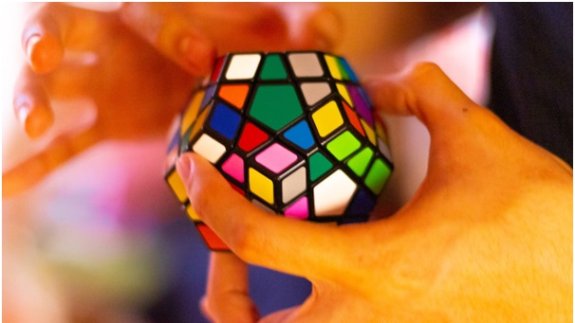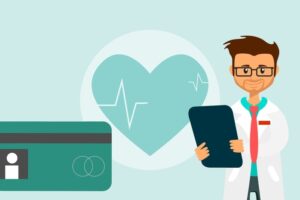Want to know something that might surprise you?
Your brain is incredibly powerful. It can rewire itself completely during addiction recovery. The latest neuroscience research shows that addiction recovery services aren’t just about willpower or motivation — they’re about helping your brain heal from the inside out.
But here’s the thing…
Most people don’t understand how addiction actually changes the brain. And they definitely don’t realize how amazing the recovery process really is.
Table of Contents
What you’ll discover:
- How Addiction Hijacks Your Brain Circuits
- The Science of Brain Recovery During Treatment
- Why Professional Addiction Recovery Services Work
- The Brain Science Behind Treatment Success

How Addiction Rewires Your Brain
Addiction isn’t a moral failing or a lack of willpower. It’s a chronic brain disease that literally changes how your brain functions.
According to recent research, addiction affects three key brain areas. The reward center gets hijacked by substances that flood it with dopamine. The prefrontal cortex — which controls decision-making and impulse control — becomes impaired. And the limbic system that handles emotions and stress gets completely out of whack.
Think about it this way…
Your brain’s reward system is designed to help you survive. When you eat food or spend time with loved ones, it releases dopamine to make you feel good. But addictive substances can release significantly more dopamine than natural rewards, and they do it faster and more consistently.
Over time, your brain tries to balance things out by becoming more resistant to dopamine. This is called tolerance, and it means you need more of the substance to feel the same effects. Meanwhile, everyday activities that used to bring joy — like spending time with family or enjoying hobbies — stop feeling rewarding.
That’s why quitting cold turkey is so difficult. Your brain chemistry is completely different than when you started using.
The Amazing Science of Brain Recovery
Here’s where the story gets really interesting…
Research from places like Red Ribbon Recovery Indiana shows that professional addiction recovery services can actually help reverse these brain changes. Quality treatment programs understand the neuroscience behind addiction and use evidence-based approaches to support brain healing.
Studies using advanced brain imaging technology reveal incredible results. After just 14 months of abstinence, dopamine transporter levels in the brain’s reward center return to nearly normal functioning. The brain literally starts healing itself when given the right support.
But it gets even better…
Research shows that sustained abstinence leads to actual tissue growth in critical brain regions. The insula and cingulate cortex — areas important for decision-making and controlling cravings — actually increase in volume during recovery. More tissue means better recovery from addiction-induced damage.
Why Professional Treatment Makes All the Difference
You might be wondering why professional addiction recovery services are so much more effective than trying to quit alone.
The answer lies in understanding how complex brain recovery really is.
While some brain functions recover naturally during abstinence, others need targeted intervention. Professional treatment programs use multiple approaches that work together to support different aspects of brain healing:
Medication-Assisted Treatment (MAT) helps stabilize brain chemistry. Studies show that MAT for opioids can produce success rates up to 50% in maintaining long-term abstinence or significant reduction in use.
Cognitive Behavioral Therapy (CBT) literally rewires thought patterns. Brain imaging studies show that CBT helps strengthen the prefrontal cortex — the area responsible for decision-making and impulse control.
Mindfulness and meditation practices create measurable changes in brain activity. Research demonstrates that these practices reduce activity in brain networks associated with addiction and rumination while increasing gray matter in regions controlling emotions and impulses.
The Brain Science Behind Treatment Success
Professional addiction recovery services work because they target the specific brain changes that happen during addiction.
Recent neuroscience research has identified that addiction involves a three-stage cycle. Each stage affects different brain regions and requires different treatment approaches. Effective treatment programs address all three stages simultaneously using medications, therapy, and support systems to create new neural pathways associated with recovery.
Brain Health Strategies for Long-Term Recovery
The most successful recovery programs focus on overall brain health, not just stopping substance use.
Physical exercise is incredibly powerful for brain recovery. Exercise increases production of brain-derived neurotrophic factor (BDNF), which helps grow new brain cells and connections. It also naturally increases dopamine, serotonin, and norepinephrine — chemicals that improve mood and reduce cravings.
Proper Nutrition gives your brain the building blocks it needs to heal. Chronic substance use depletes essential nutrients like B vitamins, omega-3 fatty acids, and amino acids. Quality nutrition programs help restore these nutrients and support neurotransmitter production.
Sleep Recovery is crucial for brain health. Addiction disrupts normal sleep patterns, but good sleep is essential for memory consolidation, emotional regulation, and clearing toxins from the brain.
Social Connection actually changes brain chemistry. Meaningful relationships activate the brain’s reward system in healthy ways, providing natural dopamine release that supports recovery.
The Future of Brain-Based Treatment
Addiction recovery services are becoming more sophisticated as we learn more about brain science.
Current research at institutions like NIDA is exploring revolutionary approaches like GLP-1 receptor agonists. These medications show promise for reducing cravings across multiple types of addiction.
Scientists are also investigating transcranial magnetic stimulation (TMS) to directly influence brain activity in regions affected by addiction. Personalized treatment based on individual brain imaging and genetic testing is becoming a reality, allowing treatment programs to tailor interventions to each person’s unique brain chemistry.
Why Understanding Brain Science Matters
The neuroscience of addiction recovery isn’t just academic — it has real-world implications for treatment success.
When people understand that addiction is a brain disease, it reduces stigma and shame. Statistics show that 48.5 million Americans aged 12 or older experienced substance use disorders in the past year. That’s a lot of people whose brains have been affected by addiction.
Understanding brain science also helps explain why recovery is often a long-term process. Just like other chronic diseases, addiction requires ongoing management. Research shows that 3 out of 4 people who experience addiction eventually recover, but the process takes time and professional support.
Finding Hope in Science
The science behind addiction recovery and brain health offers tremendous hope.
Your brain has an amazing capacity for healing and change — a quality scientists call neuroplasticity. With the right support, treatment, and time, the brain can recover from addiction and create new, healthy patterns.
Professional addiction recovery services understand this science and use it to design effective treatment programs. They know that recovery isn’t just about stopping substance use — it’s about helping your brain heal and creating lasting changes that support long-term wellness.
Making It All Work Together
The most successful addiction recovery happens when all these brain-based strategies work together.
Quality treatment programs combine medication, therapy, lifestyle changes, and ongoing support to address the complex nature of addiction. They understand that brain recovery takes time and provide the comprehensive care needed for lasting change.
The bottom line? Addiction changes your brain, but recovery can change it back. With professional support and evidence-based treatment, your brain has the power to heal itself and create a healthier, more fulfilling life.
The science is clear — addiction recovery works because it works with your brain’s natural healing abilities. Understanding this science isn’t just fascinating — it’s the key to successful, long-term recovery.




